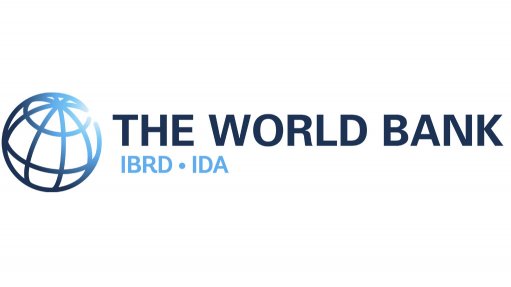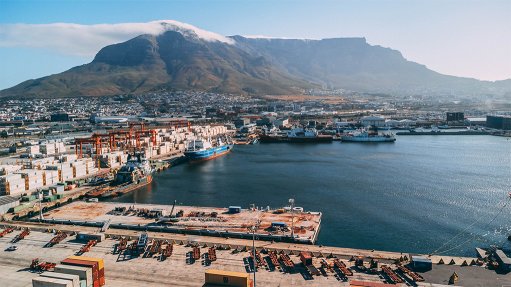Two years of TERS disbursements to preserve employment sees initial budget topped
The Unemployment Insurance Fund (UIF) has disbursed R64-billion to 5.7-million workers over two years as part of the Covid-19 Temporary Employer-Employee Relief Scheme (TERS), surpassing the Department of Employment and Labour’s (DEL's) initial budget by R24-billion, says Employment and Labour Minister Thulas Nxesi.
TERS was primarily formed to save jobs and ease the financial burden on businesses but, most importantly, their vulnerable workers after the country was placed on the first hard lockdown from March 26, 2020, to April 16, 2020, to contain the spread of the Covid-19 pandemic.
“When the pandemic hit South Africa, we were already seized with slow economic growth and the lockdown further placed us in a dire situation, resulting in a devastating effect on businesses and workers. It was therefore important to introduce Covid-19 TERS to balance curbing the spread of the virus and keep South Africa’s economic wheels going,” he says.
Covid-19 TERS is by far one of the most effective monetary government interventions as it constituted 29% of the 41% stimulus package successfully disbursed by March 31, 2021.
President Cyril Ramaphosa described Covid-19 TERS in one of his weekly newsletters as “a lifeline to struggling businesses and employees. [Covid-19 TERS] made the difference between companies remaining open and being forced to close, between jobs saved and jobs lost”.
The decision to set up Covid-19 TERS was made after extensive deliberations and concurrence with social partners at the National Economic Development and Labour Council.
“The pronouncement was in line with the department’s mission that highlights, among others, reducing unemployment and poverty through policies and programmes developed in consultation with social partners,” Nxesi emphasises.
However, the administration of Covid-19 TERS was not without challenges, as it required an overhaul of the UIF to meet the new mandate, while policies and directives also had to be developed to meet the expectation.
Changes to processes, procedures and systems without any reference for this scale of operation were essential. To enhance capacity and service delivery, the fund also added 290 call centre agents to help clients with UIF enquiries since the 125 labour centres were not open to clients.
“While plenty of companies and workers have testified of the positive financial impact of Covid-19 TERS, the Auditor-General South Africa (AGSA) report exposed some irregular payments and we learned, with dismay, that some employers were not paying over the monies to their workers.
“However, we implemented the recommendations of the AGSA, cooperated with banks and other government departments to validate accounts and at least five-million identity numbers to avoid fraudulent payments. Stringent security controls were also put in place including verification of salaries, as well as blocking all underage and UIF employees’ identity numbers from applying.”
Further, the UIF also created a fraud hotline number which conveyed information to our forensic auditors that conducted the “follow the money” project to account for every rand and cent paid through Covid-19 TERS.
“To date, the project has resulted in close to R900-million being returned to the UIF’s coffers, while our partnerships with financial institutions and law enforcement agencies at the Fusion Centre have led to several arrests and convictions in courts,” Nxesi says.
“As some level of normality has resumed this year, including a lot of economic activity, we are winding down and preparing to close Covid-19 TERS by paying all valid and remaining claims. In this regard, we will continue urging employers to correct all errors on the Covid-19 TERS portal to enable us to disburse all outstanding monies and bring an end to the Scheme.”
During the 2022/23 financial year, the UIF will focus mainly on improving service delivery and providing social security, by paying normal UIF benefits to contributors and their beneficiaries in line with the Constitution, which states that “everyone has the right to social security”.
The UIF remains in a sound financial position, as the assets have increased from R115-billion to R124-billion by December 31, 2021, and this will ensure future payments of normal benefit claims and administrative costs, Nxesi says.
“The UIF will also be one of the key instruments in our pursuit of fully achieving the expanded mandate of the department of not only focusing on labour market regulation through policies and legislation but also on creating and preserving jobs,” he says.
Comments
Announcements
What's On
Subscribe to improve your user experience...
Option 1 (equivalent of R125 a month):
Receive a weekly copy of Creamer Media's Engineering News & Mining Weekly magazine
(print copy for those in South Africa and e-magazine for those outside of South Africa)
Receive daily email newsletters
Access to full search results
Access archive of magazine back copies
Access to Projects in Progress
Access to ONE Research Report of your choice in PDF format
Option 2 (equivalent of R375 a month):
All benefits from Option 1
PLUS
Access to Creamer Media's Research Channel Africa for ALL Research Reports, in PDF format, on various industrial and mining sectors
including Electricity; Water; Energy Transition; Hydrogen; Roads, Rail and Ports; Coal; Gold; Platinum; Battery Metals; etc.
Already a subscriber?
Forgotten your password?
Receive weekly copy of Creamer Media's Engineering News & Mining Weekly magazine (print copy for those in South Africa and e-magazine for those outside of South Africa)
➕
Recieve daily email newsletters
➕
Access to full search results
➕
Access archive of magazine back copies
➕
Access to Projects in Progress
➕
Access to ONE Research Report of your choice in PDF format
RESEARCH CHANNEL AFRICA
R4500 (equivalent of R375 a month)
SUBSCRIBEAll benefits from Option 1
➕
Access to Creamer Media's Research Channel Africa for ALL Research Reports on various industrial and mining sectors, in PDF format, including on:
Electricity
➕
Water
➕
Energy Transition
➕
Hydrogen
➕
Roads, Rail and Ports
➕
Coal
➕
Gold
➕
Platinum
➕
Battery Metals
➕
etc.
Receive all benefits from Option 1 or Option 2 delivered to numerous people at your company
➕
Multiple User names and Passwords for simultaneous log-ins
➕
Intranet integration access to all in your organisation

















